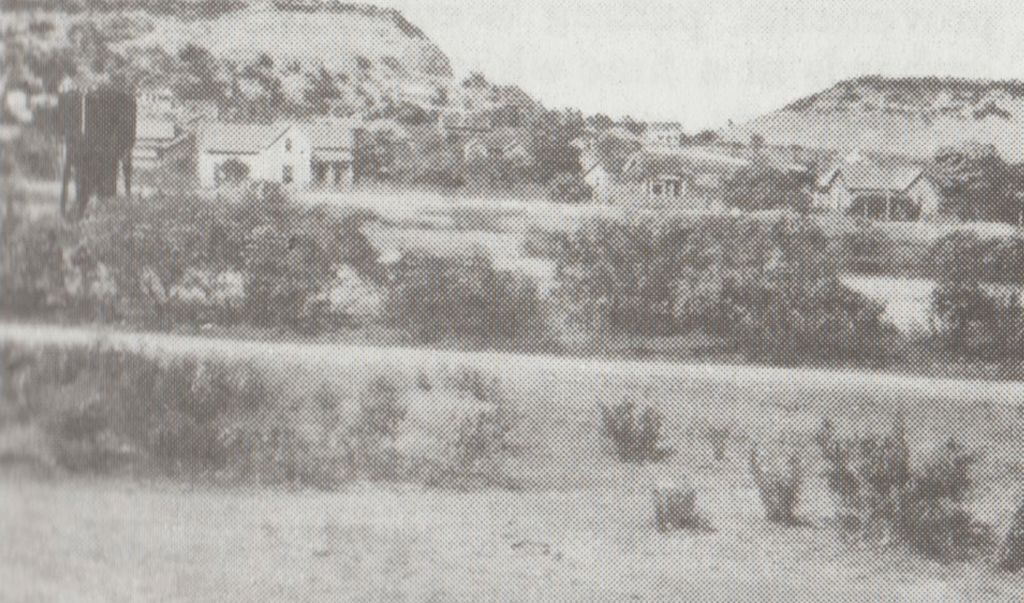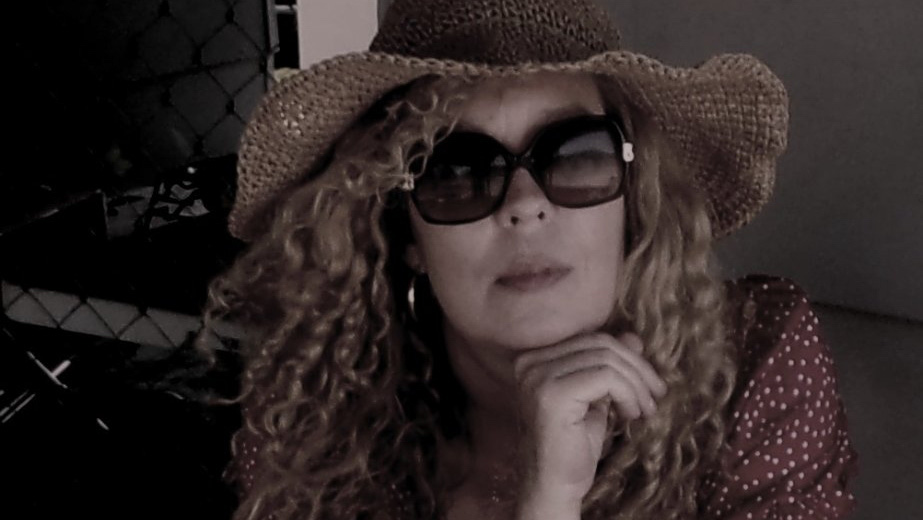
I had a table down at the Santa Anna Christmas Under the Mountain event, talking about the new red light therapy program Nurse Peggy is offering at Hensley Clinic. It was darn cold. So cold, it started me thinking about the first Christmas story out of Santa Anna. It’s a typically rough and ready tale for this section of the country, about a snowstorm, a hunt for turkeys in the bitter cold and a knife fight to the death. This story was published in a 1948 edition of Frontier Times, and as far as I can tell, that’s all that’s been said about it. It’s almost mythic, told with lots of contrast surrounding an epic struggle; still, the bulk of it is probably true enough.
In the winter of 1862, Santa Anna was the Texas frontier. With most soldiers away fighting the Civil War, the military post 10 miles north of Santa Anna, Camp Colorado, was abandoned, leaving a handful of frontier settlers to defend their settlements against deadly bands of Comanche warriors determined to oust them. So it was that on Christmas Eve of 1862, a cold, bedraggled group of Texas Rangers from the 46th Cavalry, commanded by Colonel J.E. McCord grumbled to themselves in a tent camp beneath the Shadows of Santa Anna Mountain. The Rangers had tracked a group of Comanche raiders to the gap between the twin peaks.
A fierce blizzard dumped large amounts of snow on the hapless Rangers. Among this group of battle hardened frontiersmen, happier Christmas times were remembered. “We’ll miss our hot plum pudding this Christmas,” a Lieutenant Sparks is quoted as saying. “Yep, and we’ll miss the Virginia Reel with them Jim Ned creek girls,” complained fellow sufferer, John Sinclair. Ranger Frank Alexander, a big, burly fighting man, dismissed such talk with contempt. “This ain’t no sort of country for a fellow to be thinking of such trimmings as you boys mention. It’s a place for fighting men and jerked beef. By the holy lizards, I’ll miss no ginger cake or shin-digging, but I’m going to miss my turkey gobbler and rich stuffing. ”
Lt. Sparks, inspired by this speech, dispatched Alexander and Sinclair to hunt down some wild turkeys, spotted earlier in a thicket of heavy live oaks along what the article called Santa Anna Creek. Sparks said they would barbecue one and have themselves a fine Christmas meal after all. Sinclair and Alexander traveled through heavily falling snow several miles from the camp, then separated to hunt turkeys. Alexander sat smoking his pipe, waiting for a turkey he’d followed to reemerge from the thicket, when he heard brush rustling behind him. He ducked just in time to avoid the blade of a Comanche warrior, and a deadly fight between the two men ensued. Frank Alexander was a large man, the strongest by far in the 46th, they said. After a prolonged struggle, Alexander eventually wrestled the knife from the warrior and killed him.
Sinclair, unaware of the terrible battle that raged nearby, was busy cleaning two turkeys he’d shot when Alexander met up with him. The pair hastily returned to camp, where the turkeys were roasted for a Christmas feast. The spread included pecan dressing and a surprise pan of apple dumplings. A prayer was said by Lt. Sparks thanking God for the safe return of both men. Alexander, it was stated, never liked to talk about the incident with the Comanche along the creek. He is quoted as saying. “I’m not rejoicing. Maybe […] [the Comanche] wanted a Christmas turkey too. Maybe he loved life like the rest of us, but he had no business going after my scalp.”
No tinsel and bells graced that early Christmas celebration, although the story itself might be slightly decorated. There is no Santa Anna Creek. There is, however, a small stream called the Santa Anna branch, about 5 miles southwest of the mountains, near the intersection of 235 and 2131. It ‘flows’ if you want to use that term, into Loss Creek. Given the description of the outing the two soldiers took, it could fit. The dialogue recorded in the story is second hand, far too substantially flavorful to have been anything but dressed up for the reader.
I think there was surely a party of Rangers near the gap between the hills in December 1862, and that the bare bones of the tale are true. While freezing my rear off in a lot less cold, under the same mountain and likely only a few hundred yards from where the suffering Rangers were camped, it’s something to recall these events. Not that long ago, there were no Christmas festivals under the mountain. Life here was a bitter struggle for survival, with a violent death sometimes literally waiting behind the trees.
***
Diane Adams is a local journalist whose columns appear Thursdays on BrownwoodNews.com
